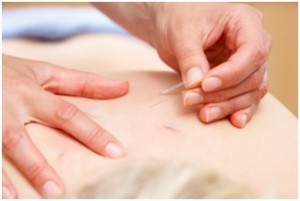This RCT1 investigated the efficacy of two different placebo treatments on adults with persistent arm pain (>3 months) who had failed past treatments.

Placebo #1: Acupuncture using validated sham needles provided twice a week for 6 weeks
Placebo #2: An inert pill taken once a day for 8 weeks
Basic Conclusion: Sham needling had greater placebo effects on subjective outcomes than oral placebo pills.
Some authors claim acupuncture is 100% placebo2 while others claim it is definitely more than just placebo.3,4
Although I endorse the use needling as a pain-relieving modality for musculoskeletal pain, I cannot deny the studies that demonstrate no differences between real and sham acupuncture.
I also cannot deny the fact that the degree of positive expectations from acupuncture are strongly associate with the positive outcomes.5
Clinical relevance: If you practice needling, not only must you ensure that patients have given their verbal consent but also ensure that they are optimistic about their acupuncture treatments to maximize the release of their endogenous opioids.
If they say that they hate and are afraid of needles, and do not think they will help …don’t bother!
References:
- Kaptchuk TJ et al Sham device v inert pill: randomised controlled trial of two placebo treatments. BMJ. 2006 Feb 18;332(7538):391-7.
- McGeeney BE. Acupuncture is all placebo and here is why. Headache. 2015 Mar;55(3):465-9.
- Hopton A Acupuncture for chronic pain: is acupuncture more than an effective placebo? A systematic review of pooled data from meta-analyses. Pain Pract. 2010 Mar-Apr;10(2):94-102.
- van den Berg-Wolf M1. Acupuncture is more than placebo treatment. Am J Med. 2014 Oct;127(10):e23.
- Linde K, et al. The impact of patient expectations on outcomes in four randomized controlled trials of acupuncture in patients with chronic pain. Pain 2007; 128(3): 264–271.

